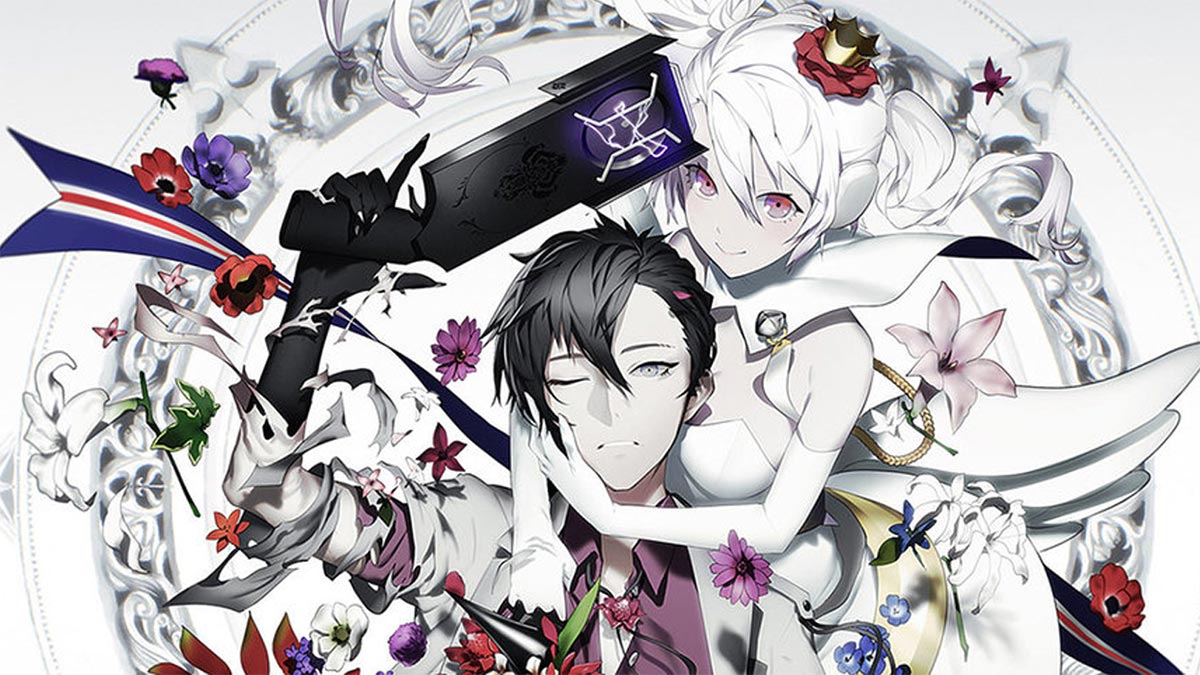The Caligula Effect: Overdose
Nintendo Switch
Reviewed by Nindie Josh
Developed By: Aquria
Published By: NIS America
Category: RPG
Release Date: March 12, 2019
The Caligula Effect: Overdose is a remake of a JRPG originally released on the PS Vita back in 2016. The following in Japan for the original title was even big enough that an anime miniseries was created in 2018 based on the game’s story. The remake Overdose now comes on the Nintendo Switch and features better graphics, two new main characters, two new antagonists, entirely new storylines, streamlined and improved combat, and the option to play as a female protagonist. This may seem like a worthy upgrade, but there are still enough faults here that if you are not a fan of the series they need to be addressed.
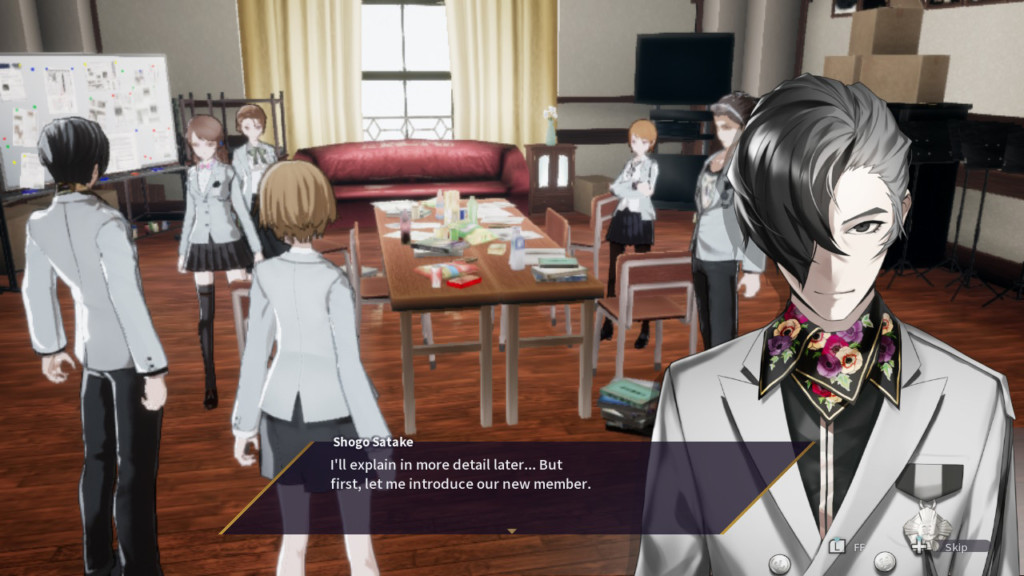
The story follows a group of students known as the ‘Go-Home Club’, who have become aware that the world they live in is nothing more than a virtual reality simulator called Mobius. It was created in an attempt to end all the pain and suffering of the world. The club, with you as its newest member, fights to uncover the secrets of Mobius, its creation, and how to escape this fake life to get back to the real world. Standing in your way though, is one of the world’s creators and her fellow musicians who only want eternal peace but at what cost?
I found the narrative to be quite confusing for the most part and even had me questioning my motives as to why I would want to proceed. The story was weird and the characters were even stranger, especially the musicians who have been brainwashing the inhabitants. I had a hard time embracing what was actually going on at first, but it did begin to make sense after a couple of hours and I eventually found myself wanting to find out what happens. Unfortunately, most of the characters were one dimensional and really had no bearing on the plot.
In terms of gameplay, the loop here has you moving from between story points via linear dungeons filled with only two things: enemies and side-quest NPC’s. Encountering an enemy will trigger a battle sequence with that person, as well as any others nearby. Combat is turn-based like many other titles in the genre, but there are some unique and interesting mechanics that make it feel unique.
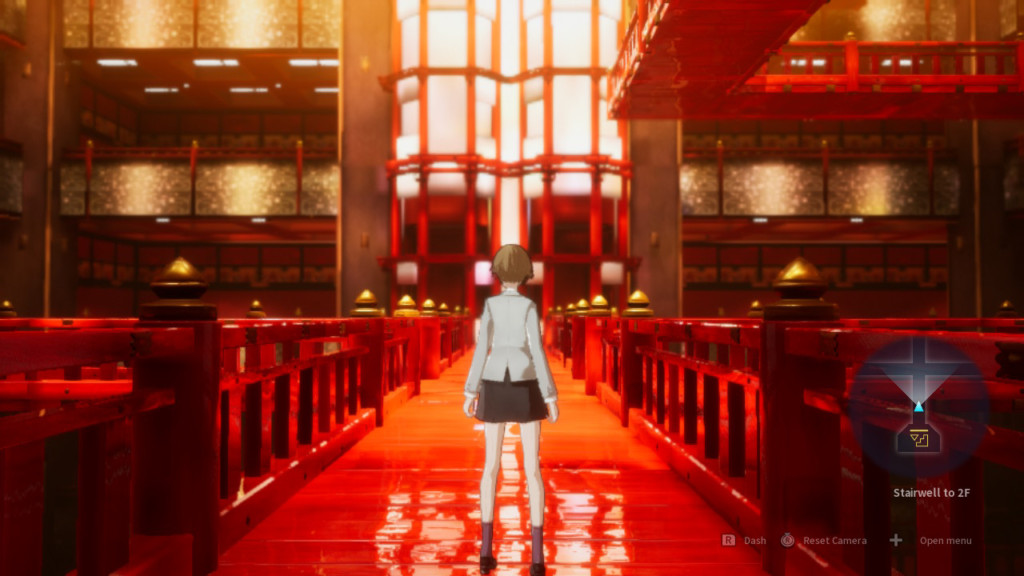
The first is called the ‘imaginary chain’ and works by after selecting an action, the imaginary chain will show the potential outcome of that action. While in this screen you will also be shown the enemies next move and can then adjust the timing of your own choices to better fit the situation, or you can just back out and choose another action entirely. The next unique battle mechanic is the ‘action chain’ and with this each of your characters can choose up to three actions at a time per turn or you can commit as few as one action, thereby decreasing your turn cool down for the next round.
These mechanics combined add a level of strategy to each battle and force you to think through each move carefully. Unfortunately, this system is fairly easy to take advantage of and battling becomes a monotonous grind. Most of the time you can limit your encounters to just one or two enemies and just charge in with all all four of your party members and destroy them all in a matter of seconds. The only battles that felt like any type of challenge were those with enemies that had higher skill level than your current party.
As you explore the world you’ll come across side-quest NPC’s and each one of these characters has a quest that they will need help with. To first access it though, you must talk to them three times to make them your friend. You become friends by just talking, and it seems like a wasted opportunity for a more intuitive friendship system. If you’re forced to talk to every character three times before taking on their quests then the quests better be interesting, but unfortunately that is not the case as well. All the side-quests are unimaginative and are repeated between different NPC’s.
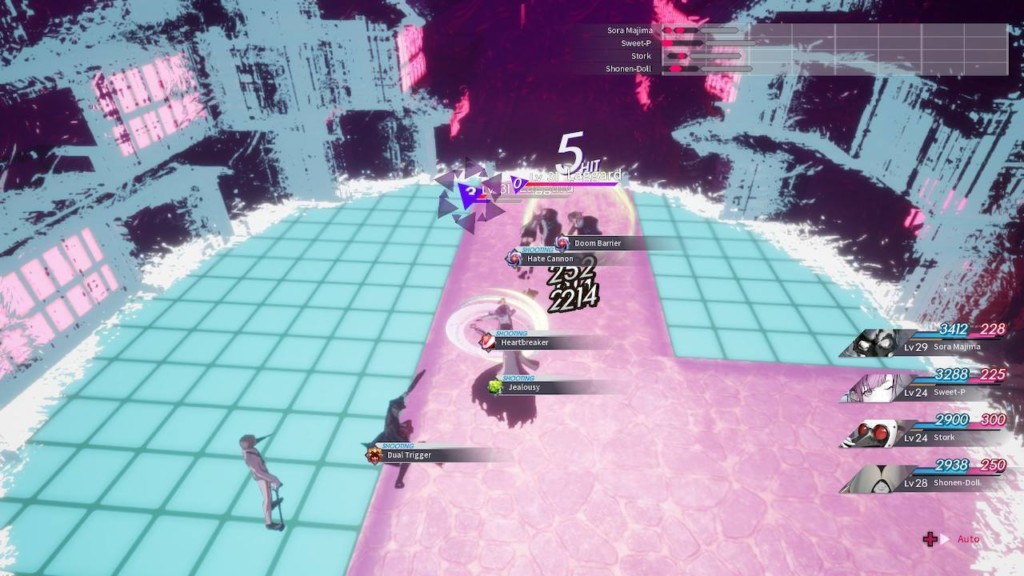
There are three types of items to be found throughout the world by getting them as a drop from defeating enemies or lying around in the dungeons. The three types are: attack, defense, and amplification, but they all serve the same purpose of giving you some number of primary stats. In the same way of how NPC quests are inconsequential, the items are over abundant and much of the time they will be useless to you, making it even less likely that you’ll want to explore the full layout of the dungeon instead of just jumping to the next story progression.
Rebuilt from the remake on the Unreal engine, the anime style visuals look great. The character movements were not entirely fluid with stiff animations, but it did not hinder the experience. The biggest problem though, was the world design with some of the levels featuring nice color palettes and visuals that look gorgeous, but each of them suffers from the same empty feeling. There is no bustling activity or life in any environment and this does detract from wanting to explore the world more.
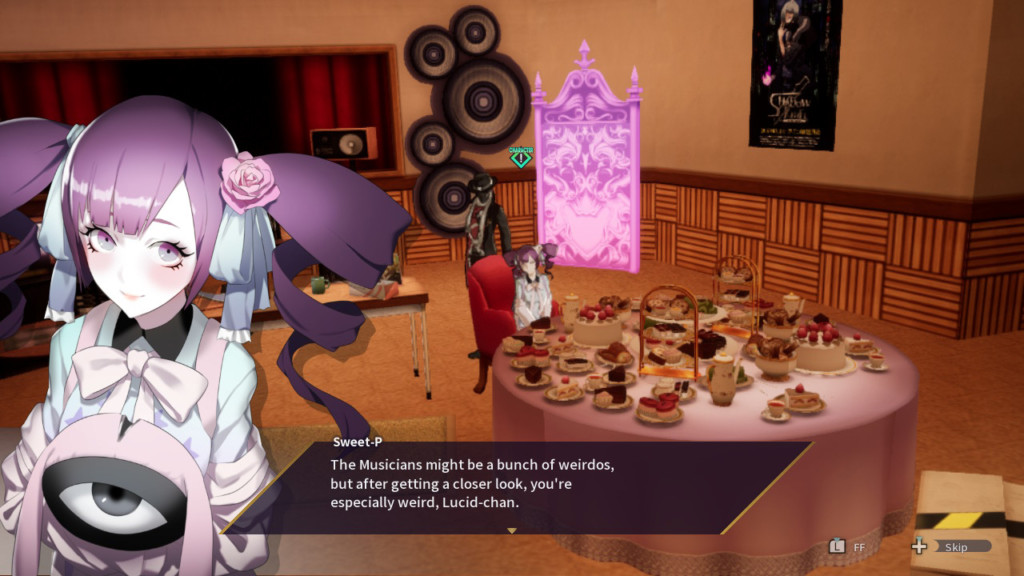
Just like the visuals, the audio is a mixed bag with some extreme highs and lows. Where the soundtrack suffers is not due to lack of quality composing or sound mixing, but instead in its lack of variety within levels. You may spend too much time in a dungeon already, but you will be listening to the same song on loop for that entire time. Additionally, the story has you confronting one musician after another and the dialogue will talk about what type of music should be playing, but instead what is actually playing will be the complete opposite. Most of the voice acting is on point though, and do a god job capturing the emotion even if the writing is not always on point.
Overall, The Caligula Effect: Overdose while featuring some neat combat and gameplay mechanics, is very lackluster in presentation. This is the type of title that will only appeal to a very specific audience. There are some unique elements that I would love to see expounded upon, but unfortunately The Caligula Effect is riddled with too many strange design choices to truly be a fun and enjoyable experience.
2.5/5





Buy The Caligula Effect: Overdose
$49.99
Be sure to follow Aquria

Also, follow NIS America

[Review] Backpack Hero – Nintendo Switch

Developed By: Jaspel Published By: Different Tales Category: Role-Playing, Simulation…

